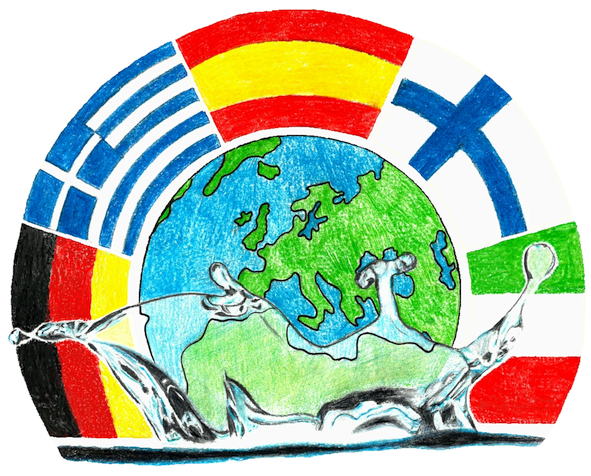Water Management (Module 4)
Module 4, “Water Management”, analyses the vital procurement of drinking water, water as an economic factor and protection against water. This module is organized by Europaschule Gymnasium Westerstede (Germany).
People have always managed the waters in the environment surrounding them. They use rivers and lakes as transport routes, change them according to their needs, use them to extract energy and irrigate their fields with the water that the rivers offer them. Besides, companies need water for numerous production processes. In addition, waters serve humans as a recreational area. But what happens to water when we humans use it? Waste water from households and industry has to be collected, cleaned and made available again.
Another focus will be the protection against water masses. For example, against the backdrop of climate change, rainwater drainage seems to be gaining importance, as recently stated by the German authorities. On the other hand, flood protection is vital for the population in riparian areas of rivers, lakes, or coasts.
The students at all five locations of the participating schools aredirectly affected by these aspects of water management, but there are significant differences. The students will analyse interactions between individual aspects in order to critically assess the measures taken by the actors in regional water management.
This requires cooperation with external partners such as the localwaterworks, industrial companies or farmers, but also with tourism organisations, sewage treatment companies, and regional planning actors, as there are no corresponding learning materials with a local or regional reference. The results of the project will thus be incorporated into the app and published on the website to make them available to other schools.
With help of this module, the students should be able to
- organise and coordinate the research with external partners such as local waterworks, industrial companies or farmers, but also tourism organisations, sewage treatment companies, and regional planning actors
- work in multinational and multilingual teams.
- research, evaluate, process, and edit the information gained.
- summarise the relevant information for a digital presentation.
- use photo editing software to edit photos in a creative way (cf. module 1).
- work with text and photo editors to create appropriate learning and teaching materials (cf. module 1).
- discuss and exchange relevant information and organise the next stages in the working process.
- split complex tasks into smaller and simpler ones which can then be tackled by individuals or small teams.
- create a presentation with a meaningful structure and a good layout.
- explain the interactions between the environment, the economy and politics as well as consequences for society (cf. Module 3).

